How Fast Do You Think? Should You Care?
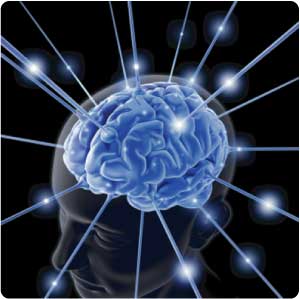 The speed at which your brain processes information is a fundamental measure of cognitive efficiency. Faster processing speeds have been linked to more effective intelligence, memory formation and even longevity. In short, the faster you think the smart you are! Happily, you can easily measure, and with practice improve, your thinking speed. Tools and techniques for increasing the speed of thought will be a frequent topic on the Next Brain Blog.
The speed at which your brain processes information is a fundamental measure of cognitive efficiency. Faster processing speeds have been linked to more effective intelligence, memory formation and even longevity. In short, the faster you think the smart you are! Happily, you can easily measure, and with practice improve, your thinking speed. Tools and techniques for increasing the speed of thought will be a frequent topic on the Next Brain Blog.
One way to get started is to take the Thinking Speed Test at Cognitive Labs. You need to go through a brief registration but it is worth it. They give you a short reaction time test and some handy feedback. You can even track your performance over time.
Try it out and post your results. Especially interested in what techniques you are using to improve it. My initial score was 241 milliseconds.
Source: Image of the Brain
Categories: IQ and EQ, Memory and Learning, Perception, Software, Training Tags: brain training, cognitive fitness, games, processing speed
Can You Use the Internet and Mobile Phones to Rewire Your Brain?
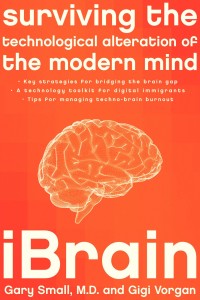 Email, search engines, social networking sites, text messaging, blogging, twitter, web-based phones, GPS, playing/making music/videos, taking and instantly sharing pictures and a slew of other technological capabilities have become widely available thanks to the internet, mobile phones and other hand-held gadgets. These new ways of creating, finding, sharing and using information are so powerful and pervasive that they are transforming how we learn, make-decisions, collaborate creatively and do many other brain-intense activities.
Email, search engines, social networking sites, text messaging, blogging, twitter, web-based phones, GPS, playing/making music/videos, taking and instantly sharing pictures and a slew of other technological capabilities have become widely available thanks to the internet, mobile phones and other hand-held gadgets. These new ways of creating, finding, sharing and using information are so powerful and pervasive that they are transforming how we learn, make-decisions, collaborate creatively and do many other brain-intense activities.
Some argue that they make us smarter or dumber. For example, the Atlantic Magazine article, Is Google Making Us Stupid? triggered a firestorm of discussion. Fortunately, the answer is no. Google and using search engines actually makes us smarter! Others take the point further and argue that the collective effect of all these technologies is driving a rewiring of our brains on a basic level. For a good introduction to this type of argument check out the book, Surviving the Technological Alteration of the Modern Mind.
The book’s theme is controversial but the authors do a great job outlining the specific technologies and their likely impact on boosting or dowsing cognitive performance. This is just the kind of information we will be covering in the Next Brain Blog. I will look at each claim and recommendation in later posts.
In the meantime, I am interested to hear reader stories on how the internet or mobile computing is being used to improve cognitive performance and build a better and longer-lasting brain.
Categories: Books, Decision Making, IQ and EQ, Memory and Learning, Perception, Software Tags: creativity
Build Your Brain By Making Better Arguments
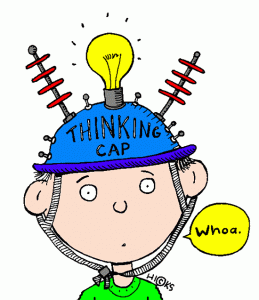 Making formally sound and psychological convincing arguments is hard mental work. It is a form of critical reasoning and therefore practicing it is a great technique for improving your thinking (cognitive) skills. Argumentation and how to use it to improve cognitive performance will be a frequent topic on the Next Brain Blog.
Making formally sound and psychological convincing arguments is hard mental work. It is a form of critical reasoning and therefore practicing it is a great technique for improving your thinking (cognitive) skills. Argumentation and how to use it to improve cognitive performance will be a frequent topic on the Next Brain Blog.
We can learn how to make good arguments much as we can learn to make good food, music or art. It takes an understanding of the fundamentals of argumentation, tons of practice and taking on new and challenging situations regularly. Fortunately, the fundamentals of argumentation are clear, there are many opportunities to constructively practice at home, work and in the community and new challenges are presented to us daily.
Getting started in the art of argument requires a clear statement of the point you want to make (the conclusion) as well as a clear statement of what justifies it (premises).
Just writing down your premises and conclusion can be a difficult challenge but one that adds enormously to the clarity of thought.
A good argument is one where the conclusion can be logically inferred from the premises, is free of logical fallacies, anticipates and deflates counter arguments, has well-justified premises and clearly delineates factual claims from opinions.
For a great introduction to the ideas of formal and informal validity of arguments check out the post, What Makes a Good Argument? on the Thinking Matters Blog. It covers the 9 types for formal validity you are likely to use as well as 8 common informal mistakes you are likely to commit.
You can show that your argument is formally valid by demonstrating the conclusion (Q) follows from the premises (P) using one or more of the rules of deductive logic. For example, one rule is called modus ponens (and I quote from Thinking Matters):
“Modus ponens is Latin. It means “the mode which affirms”. Knowing the English translation makes it very easy to follow:
- P –> Q
- P
- Q
In plain English: if P, then Q; P, therefore Q. “P” and “Q” represent propositions, so it’s helpful to substitute in simple phrases for them, to get a better idea of what the rule is saying. For example, let P mean “it is raining”, and let Q mean “the ground is wet”. So:
- If it is raining, then the ground is wet.
- It is raining.
- Therefore, the ground is wet.
As you see, this is really a very simple and obvious rule—as you’ll find that all the fundamental rules of logic are.”
 Formal validity is not enough. Your argument must also must avoid falling into a logic trap. For example, consider the argument from ignorance (quoting from Thinking Matters):
Formal validity is not enough. Your argument must also must avoid falling into a logic trap. For example, consider the argument from ignorance (quoting from Thinking Matters):
“Arguing that a belief is false because there is insufficient evidence for it.
- No one can disprove the existence of God. Therefore, God exists.
- There’s no evidence that the Red Sea was ever parted. Therefore, the account in Exodus is a myth. (Notice, though, that an argument saying that there is evidence that the Red Sea was not ever parted would not be fallacious.)”
I have heard many arguments made this way. It may take you an hour or so to work through all 17 principles and really understand each one. However, it is well worth your time. With a basic understanding you can use them as a quick checklist to refine the clarity, power and validity of your arguments.
I am interested to hear from readers that practice the art of argumentation and how it has impacted your effectiveness as a thinker.
Sources: Image of Thinking Cap, Image of Logical Fallacy
Categories: IQ and EQ, Problem Solving, Training Tags: critical reasoning, critical thinking
Vitamins for Cognitive Performance
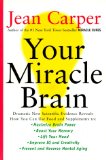 I am often asked if there are specific vitamins that are proven to enhance brain and cognitive function. The answer is yes but the level of improvement is not always clear. Vitamins that are generally called out for their brain boosting effects include:
I am often asked if there are specific vitamins that are proven to enhance brain and cognitive function. The answer is yes but the level of improvement is not always clear. Vitamins that are generally called out for their brain boosting effects include:
- B vitamins – memory and brain development
- Antioxidants or vitamins E, C and A (beta carotene) – overall functioning
- Multivitamins – overall functioning
Of course it is not just vitamins that help our brain function well but other supplements (e.g. minerals and fatty acids) and the foods we eat. Diet and supplements will be a frequent topic on the Next Brain Blog.
For a comprehensive overview of how supplements and diet impact brain function I suggest you read (or listen to) Jean Carper’s book, Your Miracle Brain: Dramatic New Scientific Evidence Reveals How You Can Use Food and Supplements To: Maximize Brain Power, Boost Your Memory, Lift Your Mood, Improve IQ and Creativity, Prevent and Reverse Mental Aging.
If you take supplements or have customized your diet to improve cognitive performance please leave a comment and share your results.
Categories: Books, Cognitive Decline, Diet, IQ and EQ, Memory and Learning, Mental Focus Tags: vitamins
Does Listening to Classical Music Increase IQ?
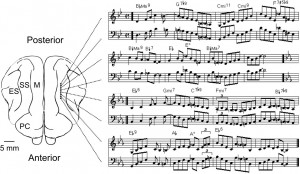 I get this question a lot. It goes back to the craze around the Mozart Effect or the idea you can get smart by listening to Mozart’s music. As far as I can tell there is no (or little) scientific evidence to support the idea. There is some evidence however that listening may temporarily (10-15 min) improve your spatial reasoning skills.
I get this question a lot. It goes back to the craze around the Mozart Effect or the idea you can get smart by listening to Mozart’s music. As far as I can tell there is no (or little) scientific evidence to support the idea. There is some evidence however that listening may temporarily (10-15 min) improve your spatial reasoning skills.
More relevant for readers of the next Brain Blog is the growing evidence that learning to play a musical instrument can improve many cognitive skills and perhaps raise IQ. Scans reveal musician’s brains look different and they tend to score higher on standardized tests for spatial-temporal tasks, verbal memory and even math. One study suggested a small increase in IQ of children taking music lessons.
As learning to play a musical instrument brings intrinsic satisfaction, it may be a particularly good option for building YourNextBrain! Interested to hear from reader with brain boosting experiences related to learning an instrument.
Source: Image of brain and sheet music
Categories: Child, IQ and EQ, Memory and Learning, Music and Audio, Training Tags: Mozart Effect
Is Your Next Brain in Fact Your Heart?
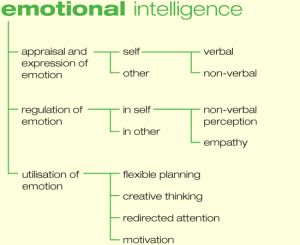 Daniel Goleman popularized the notion of Emotional Intelligence in 1995 in his best selling book by the same name. The idea is that a lot of what counts as smarts comes from our ability to perceive and manage emotions in ourselves and others. This is the foundation for self control and healthy relationships and leads to a successful life. The focus on emotional thinking versus rational or logical thinking as a key to intelligence was a huge paradigm shift that is still unfolding today.
Daniel Goleman popularized the notion of Emotional Intelligence in 1995 in his best selling book by the same name. The idea is that a lot of what counts as smarts comes from our ability to perceive and manage emotions in ourselves and others. This is the foundation for self control and healthy relationships and leads to a successful life. The focus on emotional thinking versus rational or logical thinking as a key to intelligence was a huge paradigm shift that is still unfolding today.
There is no doubt that understanding and manging emotions is a key for improving learning, decision-making, creativity, collaboration and other cognitive skills. Emotional intelligence will be a frequent topic on the Next Brain Blog. In an earlier post I provided links to quick and in-depth surveys that let you measure your emotional quotient (EQ) or level of emotional intelligence. In this post we will start to examine techniques for improving it.
For a quick introduction to how to develop your EQ check out the HELPGUIDE’s post on Five Key Skills for Building Emotional Intelligence. Although there are literally thousands of websites, books and other resources for learning about EQ I like this site. It demonstrates that emotional intelligence is rooted in common-sense life skills such as quickly reducing stress and managing your own feelings. No rocket science but the fact is that we often don’t take the time to develop specific skills to do these kinds of things and that impedes our cognitive performance.
Check the site out and please comment on the specific techniques you use to develop EQ.
Source: Emotional Intelligence Image
How Your Mind Improves With Age
 We have been taught that our minds decline with age. We become more forgetful, find it harder to learn, cannot focus as intensely, loose our creative powers and cannot master new technical specialties. Our brain cells die off, new connections don’t form and our brains shrink. A dark picture of increasing cognitive decline.
We have been taught that our minds decline with age. We become more forgetful, find it harder to learn, cannot focus as intensely, loose our creative powers and cannot master new technical specialties. Our brain cells die off, new connections don’t form and our brains shrink. A dark picture of increasing cognitive decline.
Fortunately, a growing number of studies show that some of these ideas are false and that we actually improve in certain aspects of cognitive performance as we age. We keep most of our brain cells and can form major new connections through something called neuroplasticity much later into life than previously thought. We develop greater abilities in drawing conclusions from examples, making judgement, seeing the meaning of situations and many other aspects of mental functioning.
In a recent blog post, Barbara Strauch, deputy science editor and health and medical science editor at The New York Times writes:
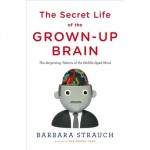 “Over the past few years, neuroscientists have begun to zero in on the brain’s changes in middle age, and what they’ve found is encouraging. Results of long-term studies show that — contrary to stereotypes — we actually grow smarter in key areas in middle age which, with longer life spans, now stretches from our mid 40s to our mid to late 60s.”
“Over the past few years, neuroscientists have begun to zero in on the brain’s changes in middle age, and what they’ve found is encouraging. Results of long-term studies show that — contrary to stereotypes — we actually grow smarter in key areas in middle age which, with longer life spans, now stretches from our mid 40s to our mid to late 60s.”
She expands on this point in her fourth coming book, The Surprising Talents of the Middle-Aged Mind.
The importance of this type of research for improving our minds and brains is significant. Why?
The assumptions we make about our own cognitive abilities strongly determines how well we perform.
For example, assuming you are forgetful, less creative, unable to master a second language or that math is impossible to learn all lower cognitive performance. Changing self-limiting assumptions about our own minds and the social stereotypes about aging brains mentioned above will take a long time. But it is a powerful means for improving cognitive performance and will be a frequent topic on the Next Brain Blog.
Source: Image of Older Adult
Categories: Books, Cognitive Decline, IQ and EQ, Older Adult Tags:
Can 3 Minutes of Yoga Daily Improve Your Brain?
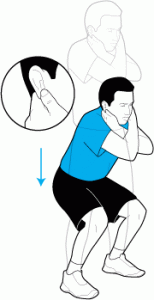 Doing Yoga can change how your brain functions. Yoga as a worldview, exercise routine and even a lifestyle offers important options for improving the performance of our minds and brains. The mind-enhancing effects of Yoga will be a regular topic on the Next Brain Blog.
Doing Yoga can change how your brain functions. Yoga as a worldview, exercise routine and even a lifestyle offers important options for improving the performance of our minds and brains. The mind-enhancing effects of Yoga will be a regular topic on the Next Brain Blog.
A simple Yoga exercise has been in the news lately. It involves holding your earlobes, placing your tongue on the roof of your mouth and rhythmically breathing while doing deep knee bends. Sounds a bit strange but it does not take long. According to many reports from teachers, doctors, therapists and scientists it produces results such as improved self-control, more mental energy and increased intelligence.
Check out this CBS news report for an introduction to the technique and what people are experiencing.
The news report mentions confirming EEG studies but I have not been able to locate those. I did find this post that offers this explanation:
“There is a lot of research to support that simple exercises like a breathing squat can improve function, focus and efficiency in the brain. Activation of specific acupressure points from the earlobes during the squat exercise stimulates the brain on the opposite side. Do the breathing squat exercise 21 times with the tongue touching the roof of the mouth. Exhale while squatting and inhale while standing up. Perform this movement with a 555 tempo. 5 seconds down-hold for 5 -5 seconds up. This simple exercise will activate chemicals in the brain, create synchronicity of the hemispheres, activate the pineal gland for awakeness and activate the pressure points of the ear lobes. The combination of crossing the midline, as well as stimulating the pressure points creates a perfect storm of electrical brain activity that stimulates neuropathways and can literally make you think better.”
If you want to give it a try be sure you are fit enough to do deep knee beds. You can find very clear directions on exactly what to do on eHow. If you do try it out please post a comment and share your results and experience.
Source: Exercise Image
Categories: Ancient Ways, IQ and EQ, Mental Focus, Training Tags: Yoga
Practice Mindfulness to Sharpen Mind and Perhaps Build a Bigger Brain
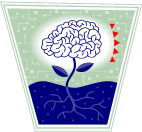 Studies have shown that if you spend a lot of time juggling or playing a musical instrument the parts of your brain that supports these activities grows bigger. London taxi cab drivers that spend a decade memorizing elaborate routes experience significant brain changes. These facts support a major premise behind this blog namely, we are far more in charge of the shape, size, longevity and performance of our brain than we realize.
Studies have shown that if you spend a lot of time juggling or playing a musical instrument the parts of your brain that supports these activities grows bigger. London taxi cab drivers that spend a decade memorizing elaborate routes experience significant brain changes. These facts support a major premise behind this blog namely, we are far more in charge of the shape, size, longevity and performance of our brain than we realize.
It would stand to reason that people who meditated extensively should have bigger brains. I have found a few studies that that support this idea but there is not enough data for a firm conclusion. In one study:
“Our data suggest that meditation practice can promote cortical plasticity in adults in areas important for cognitive and emotional processing and well-being,” says Sara Lazar, leader of the study and a psychologist at Harvard Medical School. “
In a second study:
“Using MRI scans the scientists show that there was “significantly larger cerebral measurements in mediators”.
No matter, even if mediation does not grow your brain there have been studies that demonstrate improved clarity of thinking, enhance self-control, reduced stress and self-reported well being. As such it is an important option for improving cognitive performance and will be a frequent topic on the Next Brain Blog.
 Buddhist insight mediation that advocates focusing on sensation rather than our thoughts of sensation seems to produce results. It is similar to the more modern movement of mindful mediation that focuses on “being in the moment”. Finally, there is a third, non-mediative approach to mindfulness that we will explore. It is based on the contemporary work of Ellen Langer and seeks to achieve a heightened state of situational awareness of conscious control over thoughts and actions. Insight mediation, mindful mediation and cognitive mindfulness.
Buddhist insight mediation that advocates focusing on sensation rather than our thoughts of sensation seems to produce results. It is similar to the more modern movement of mindful mediation that focuses on “being in the moment”. Finally, there is a third, non-mediative approach to mindfulness that we will explore. It is based on the contemporary work of Ellen Langer and seeks to achieve a heightened state of situational awareness of conscious control over thoughts and actions. Insight mediation, mindful mediation and cognitive mindfulness.
If you are interested in giving it a try I suggestion action over reading. Try this simple five-step experiment in mindful meditation.
Source: Mindfulness Image
Categories: Ancient Ways, IQ and EQ, Manage Emotions, Mental Focus, Training Tags: Buddhist, meditation, mindfulness
Measure Your EQ & Build Emotional Intelligence
Over the last two decades we have done the science to know that being smart about emotions is the key to life success. A common sense conclusion for many but with the science we now have the tools for systematically getting better at it.
 Some argued that your emotional quotient (EQ) is more important than your intelligence quotient (IQ) when it come to achieving success. Emotional smarts over book smarts. This is true because emotions play a critical role in learning, problem solving, decision making, creativity, collaborating and many other brain-heavy activities. So it should be no surprise that being smart about emotions – being able to spot them, harness them to positive outcomes and even generate them on demand – is a cornerstone for success.
Some argued that your emotional quotient (EQ) is more important than your intelligence quotient (IQ) when it come to achieving success. Emotional smarts over book smarts. This is true because emotions play a critical role in learning, problem solving, decision making, creativity, collaborating and many other brain-heavy activities. So it should be no surprise that being smart about emotions – being able to spot them, harness them to positive outcomes and even generate them on demand – is a cornerstone for success.
Focusing on EQ and strengthening emotional intelligence is key to developing YourNextBrain! It will be a frequent topic on this blog. To get started check out the post from Psychology Today on Emotional Intelligence. They provide a crisp definition:
“Emotional intelligence is the ability to identify and manage your own emotions and the emotions of others. It is generally said to include three skills:
 emotional awareness, including the ability to identify your own emotions and those of others;
emotional awareness, including the ability to identify your own emotions and those of others;- the ability to harness emotions and apply them to tasks like thinking and problems solving;
- the ability to manage emotions, including the ability to regulate your own emotions, and the ability to cheer up or calm down another person.”
As well as links to many great overview articles.
If you are considering building up your emotional intelligence I suggest you start by measuring it:
- Quick Measure (17 questions and 10 minutes)
- In Depth Measure (106 questions and 30 minutes)
Please share what you learn about your EQ and experiences you have had in improving it.
Categories: IQ and EQ, Manage Emotions Tags: emotion, EQ
